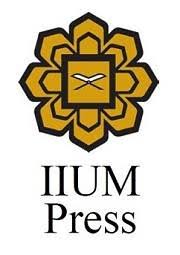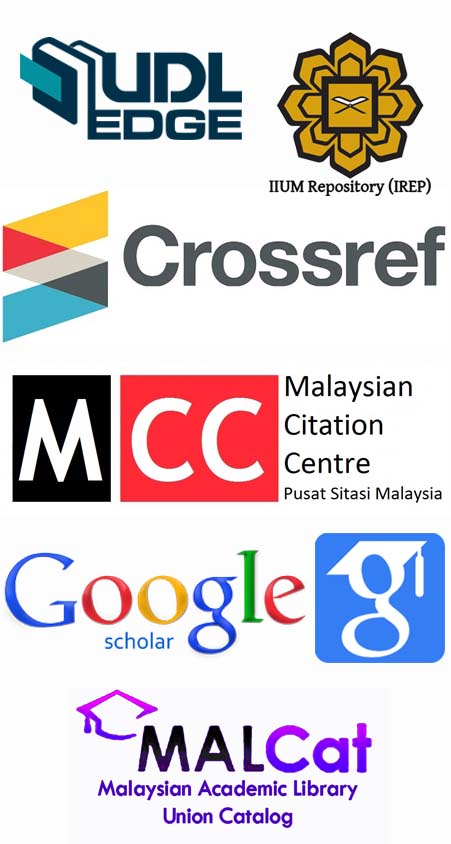Reasserting the Maqasid of Islamic Revealed Knowledge Curricula: The Experience of the Department of Qurʾan and Sunnah Studies in IIUM
DOI:
https://doi.org/10.31436/alburhn.v4i2.196Keywords:
Islamic education, maqāṣid al-Qurʾān wa al-Sunnah, Outcome Based Education, Islamic philosophy of quality, curriculum designAbstract
Defining the characteristics of excellence for Islamic education institutions has proven to be one of the most challenging and highly debated issues in the modern time. On the one hand, ideals and visions derived from certain philosophical presuppositions or religious outlooks are competing to mould the shape of academic programme offered by the institutions. On the other, the official authority, whose directives an institution is subjected to abide by, often projects certain standards to measure the output of excellent production, mostly in relation to industrial demands. In the case of Islamic studies programme, or as it is named in the International Islamic University Malaysia, Islamic Revealed Knowledge and Heritage, there are notions of maqāṣid being gradually discussed by its scholars and proponents of Islamic education alike. This conception of maqāṣid, which can also be called maqāṣid tarbawiyyah, seems to correspond slightly to the theory of Outcome Based Education adopted by the Malaysian Qualification Agency – a body responsible for the assurance of quality education. However, it treats the aspects of purpose and objective in light of the Islamic scriptural thought and educational philosophy. This paper shares the experience of the Department of Qurʾan and Sunnah Studies in IIUM in formulating its Programme Learning Outcome in accordance with OBE and multiple level educational agenda, i.e. global, national and university, whilst navigating through the growing discourse of maqāṣid of Qurʾān and Sunnah studies. It speaks of the thoughts and efforts conveyed by the department to advance its ethos of “traditional embracement, critical engagement, and spiritual enhancement” through its curriculum design. The paper discusses amongst others the development of discourse pertaining to maqāṣid al-Qurʾān wa al-Sunnah and key important elements of educational objectives according to the views of Muslim scholars in the field of Qurʾān, Sunnah and Sīrah Studies. It ambitiously aims as an invitation to scholars to contribute to the narratives of maqāṣid in curricula management and policy making as well as the enhancement of Islamic philosophy of quality and educational excellence.
Downloads
References
al-Qurʾān al-Karīm.
A Common Word. “The ACW Letter.” Accessed January 5, 2020. https://www.acommonword.com/the-acw-document/.
ʿAbbād, ʿAbd al-Muḥsin Ibn Ḥamd al-. Dirāsat Ḥadīth Naḍḍara Allah ʾMraʾan Samiʿa Maqālatī Riwāyatan Wa Dirāyatan. Madinah, KSA: Matabi’ al-Rashid, 1981.
ʿAbd al-Raḥman, Ṭāhā. al-Lisān Wa al-Mīzān aw al-Takawthur al-ʿAqlī. Morocco: al-Markaz al-Thaqāfī al-ʿArabī, 1998.
Adam, Ahmad. “Mabādiʾ ʿUlūm al-Qurʾān al-ʿAsharah.” Alukah.net, March 27, 2010. https://majles.alukah.net/t54266/.
ʿAllām, Faraj Aḥmad Sālim. al-Tadāwul al-Ḥaḍārī fī al-Qurʾān al-Karīm. Cairo: Dar Rawabit li al-Nashr wa Taqniyat al-Maʿlumat, 2018.
ʿAsri, Sayf al-. “al-Mabādiʾ al-ʿAsharah Li ʿIlm al-ʿAqīdah.” Youtube, July 9, 2017. https://www.youtube.com/watch?v=S-sUSjLhKkw.
ʿAsri, Sayf al-. “al-Mabādiʾ al-ʿAsharah Li ʿIlm al-Ḥadīth.” Youtube, July 14, 2017. https://www.youtube.com/watch?v=QFeIm1NL2UQ.
ʿAsri, Sayf al-. “al-Mabādiʾ al-ʿAsharah Li ʿUlūm al-Qurʾān.” Youtube, July 3, 2017. https://www.youtube.com/watch?v=qFa9VY3D_r8.
Baghdādī, Aḥmad Ibn ʿAlī Ibn Thābit al-Khaṭīb al-. al-Jāmiʿ Li Akhlāq al-Rāwī Wa Ādāb al-Sāmiʿ. Riyadh: Maktabah al-Maʿārif, 1983.
Baghdādī, Aḥmad Ibn ʿAlī Ibn Thābit al-Khaṭīb al-. al-Kifāyah Fī Uṣūl ʿIlm al-Riwāyah. Edited by Māhir al-Faḥl. Riyadh: Dār Ibn al-Jawzī, 2011.
Baghdādī, Aḥmad Ibn ʿAlī Ibn Thābit al-Khaṭīb al-. Iqtiḍāʾ al-ʿIlm al-ʿAmal. Beirut: al-Maktab al-Islāmī, 1984.
Baghdādī, Aḥmad Ibn ʿAlī Ibn Thābit al-Khaṭīb al-. Kitāb al-Faqīh Wa al-Mutafaqqih. Riyadh: Dār Ibn al-Jawzī, 1996.
Baghdādī, Aḥmad Ibn ʿAlī Ibn Thābit al-Khaṭīb al-. Naṣīḥat Ahl al-Ḥadīth. Jordan: Maktabah al-Manār, 1988.
Bīḍānī, Ṣādiq al-. Nuzhat al-Ṭarf Sharḥ Bināʾ al-Afʿāl Fī ʿIlm al-Ṣarf. Beirut: Dar al-Luʾluʾah, 2000.
Bloom, Benjamin S. The Taxonomy of Educational Objectives: Handbook 1. Harlow, England: Longman Higher Education, 1956.
Bouakkez, Aissa. “Maqāṣid al-Qurʾān al-Karīm Wa Maḥāwiruhu ʿinda al-Mutaqaddimīn Wa al-Mutaʾakhkhirīn.” al-Iḥyāʾ 17, no. 1 (2017): 81–106.
Boudoukha, Massoud. “Juhūd al-ʿUlamāʾ Fī Istinbāṭ Maqāṣid al-Qurʾān al-Karīm.” In Juḥud al-Ummah Fī Khidmat al-Qurʾān al-Karīm Wa ʿUlūmihi, 953–84. Morocco: Foundation for Scientific Research and Studies Mobdii, 2011.
Brown, Jonathan A. C. Hadith: Muhammad’s Legacy in the Medieval and Modern World. Oxford, England: Oneworld Publications, 2018.
Bukhārī, Muḥammad Ibn Ismāʿīl al-. Ṣaḥīḥ al-Bukhārī. Translated by M. Muhsin Khan. sunnah.com. Accessed July 15, 2020. https://sunnah.com/bukhari.
Chittick, William C. The Sufi Path of Knowledge: Ibn al-Arabi’s Metaphysics of Imagination. Albany, NY: State University of New York Press, 1989.
Cobb, Charles G. The Project Manager’s Guide to Mastering Agile: Principles and Practices for an Adaptive Approach. New York, NY: John Wiley and Sons (WIE), 2015.
Conn, Charles, and Robert McLean. Bulletproof Problem Solving: The One Skill That Changes Everything. New York, NY: John Wiley and Sons (WIE), 2019.
Delors, Jacques. Learning: The Treasure within; Report to UNESCO of the International Commission on Education for the Twenty-First Century. Paris: Unesco Publishing, 1996. https://unesdoc.unesco.org/ark:/48223/pf0000109590.
FINTERRA. “Unlocking the Maqasid of Islamic Revealed Knowledge: Why & How? - Shaykh Dr. Ahmad Al Raysuni.” Youtube, February 5, 2020. https://www.youtube.com/watch?v=ARIe1jyF2B0.
Frank, Robert H. Microeconomics and Behavior. 7th ed. New York, NY: McGraw-Hill, 2008.
Fumi-fuiw.org. “Objectives – FUIW.” Accessed June 30, 2020. http://www.fumi-fuiw.org/en/objectives.
Fumi-fuiw.org. “Setting up – FUIW.” Accessed June 30, 2020. http://www.fumi-fuiw.org/en/setting-up/.
Ghumārī, ʿAbd Allah ibn Muḥammad ibn al-Ṣiddiq al-. Tawjīh al-ʿInāyah li Taʿrīf ʿIlm al-Ḥadīth Riwayah wa Dirāyah. Cairo: Maktabah al-Qahirah, 2008.
Ḥāfiẓ, Muḥammad Muṭīʿ. al-Maḥāsin al-Ṣultāniyyah Fī Dār al-Ḥadīth al-Nūriyyah. Damascus: Dar al-Bayruti, 2006.
Ḥāfiẓ, Muḥammad Muṭīʿ. Dār al-Ḥadīth al-Ashrafiyyah Bi-Dimashq: Dirāsah Tārīkhiyyah Tawthīqiyyah. Damascus: Dar al-Fikr al-Muʿasir, 2001.
Hassan, Mohd Kamal. “The Necessity of Relevantisation (Islah, Tajdid, Ijtihad, Ihya’, Tashih, ‘iadat al-Nazar, Bina’ Jadid) of Islamic Revelead Knowledge Disciplines.” In Seminar on Relevantization of Islamic Revealed Knowledge Disciplines, 2013.
Ḥellalī, ʿAbd al-Raḥmān. “Muqārabāt Maqāṣid al-Qurʾān al-Karīm: Dirāsah Tārīkhiyyah.” al-Tajdīd 20, no. 39A (2016): 193–234.
Hindī, Muḥammad Ibn ʿAlī al-. “al-Mabādiʾ al-ʿAsharah Li Fann al-Fiqh.” Kalemtayeb.com. Accessed 6, 2020. https://kalemtayeb.com/safahat/item/34759.
Hussain, Ather Shahbaz. “The Nuzhah of Ibn Ḥajar al-ʿAsqalānī (852/1449); A Translation and Critical Commentary.” University of Birmingham, 2012.
Ibn Qayyim al-Jawziyya. Ranks of the Divine Seekers: A Translation of Madārij al-Sālikīn Bayna Manāzil Iyyāka Naʿbudu Wa-Iyyāka Nastaʿīn by Ibn Qayyim al-Jawziyya (d. 750/1351): A Parallel English-Arabic Text. Volume 1. Edited by Ovamir Anjum. BRILL, 2020.
Icesco.org. “Vision, Mission & Objectives – ICESCO-En.” Accessed June 30, 2020. https://www.icesco.org/en/vision-mission-objectives/.
International Islamic University Malaysia. “About-IIUM | Vision and Mission.” www.iium.edu.my. Accessed January 5, 2020. https://www.iium.edu.my/page/about-iium.
International Islamic University Malaysia. “IIUM Roadmap 2019 - 2020.” www.iium.edu.my. Accessed June 30, 2020. https://photos.iium.edu.my/publication/roadmap3_2/.
Khan, Muin-ud-Din Aḥmad. “The Concept of Knowledge in the Qurʾān.” Humanomics 18, no. 3 (2002): 26-41.
Khuḍayrī, Muḥammad al-. al-Mabādiʾ al-ʿAshr Allatī Yaḥtājuhā Ṭālib al-ʿIlmi - ʿUlūm al-Qurʾān (01). Islamway.net, 2014. https://ar.islamway.net/lesson/160169/.
Kūfī, Abū ʿAmmār al-. “al-Mabādiʾ al-ʿAsharah Li ʿIlm al-Naḥwi.” Alfaseeh.com, October 3, 2009. http://www.alfaseeh.com/vb/showthread.php?t=50200.
Lowry, Joseph. Early Islamic Legal Theory: The Risala of Muhammad Ibn Idris al-Shafi’i. Leiden, Netherlands: Brill, 2007.
Mahāʾimī, ʿAlī Ibn Ahmad al-. Tabṣīr al-Raḥmān Wa Taysīr al-Mannān Baʿḍ Mā Yushīru Ilā Iʿjāz al-Qurʾān. Vol. 2. Egypt: Matba’ah Boulaq, 1878.
Malaysian Qualifications Agency, Programme Standards: Islamic Studies, 2013. https://www2.mqa.gov.my/QAD/garispanduan/2019/PS%20Islamic%20Studies/17.%20PS%20-%20Islamic%20Studies_BI%20-%20[FB].pdf.
Malaysian Qualifications Agency. “Guidelines to Good Practices: Curriculum Design and Delivery,” 2011. https://www2.mqa.gov.my/QAD/garispanduan/2019/GGP%20CDD/4.%20GGP%20-%20Curriculum%20Design%20and%20Delivery_BI%20-%20[FB].pdf.
Malaysian Qualifications Agency. Code of Practice for Institutional Audit. 2nd ed., 2009. https://www2.mqa.gov.my/qad/garispanduan/COPIA/COPIA%202nd%20Edition.pdf.
Malaysian Qualifications Agency. Code of Practice for Programme Accreditation. 2nd ed., 2008. https://www2.mqa.gov.my/qad/garispanduan/COPPA/COPPA%202nd%20Edition%20Dec%202008.pdf.
Malaysian Qualifications Agency. Malaysian Qualifications Framework (MQF) 2nd Edition, 2019. https://www.mqa.gov.my/pv4/document/mqf/2019/Oct/updated%20MQF%20Ed%202%2024102019.pdf.
Mālikī, ʿalī al-Ṣāliḥī al-. Risālat Taḥqīq Mabādiʾ al-ʿUlūm al-Iḥdā ʿAshar. Cairo: Matba’ah al-Sa’adah, 1907.
Markaz Iḥsān li Dirāsat al-Sunnah al-Nabawiyyah. “Damj Mahārāt al-Tafkīr fī Tadrīs ʿUlum al-Ḥadīth.” Ihsancenter.com. Accessed August 25, 2020. http://ihsancenter.com/pages/21
Muslim, Ibn al-Ḥajjāj al-Naysābūrī. Ṣaḥīḥ Muslim. Translated by Abdul Hamid Siddiqui. sunnah.com. Accessed July 15, 2020. https://sunnah.com/muslim.
Nawawī, Yaḥyā Ibn Sharaf al-. al-Minhāj Sharḥ Ṣaḥīḥ Muslim Ibn al-Ḥajjāj. Edited by Khalīl Maʾmūn Shīḥā. 19th ed. Beirut: Dar al-Marefah, 2012.
Naysābūrī, Muḥammad Ibn ʿAbd Allah al-Ḥākim al-. al-Mustadrak ʿalā al-Ṣaḥīḥayn. Edited by Muqbil Ibn Hādī al-Wādiʿī. Vol. 5. Cairo: Dar al-Haramayn, 1997.
Newlon, Brendan. “The Ten Essentials: A Poem by Muḥammad Ibn ʿAlī al-Ṣabbān (d. 1206/1791),” 2016. https://www.academia.edu/25045808/The_Ten_Essentials_of_Knowledge_Muhammad_ibn_Ali_al_Sabbans_d_1791_didactic_poem_Al_Mabadi_Al_Ashara_المبادئ_العشرة_.
Raissouni, Aḥmad. “Daqīqah Maqāṣidiyyah: Ghāyatī Taqṣīd al-ʿUlūm al-Sharʿiyyah” Raissouni.net, June 30, 2020. http://raissouni.net/2019/10/11/دقيقة-مقاصدية-غايتي-تقصيد-العلوم-الشر/
Raissouni, Ahmad. Maqāṣid al-Maqāṣid: al-Ghāyāt al-ʿIlmiyyah Wa al-ʿAmaliyyah Li Maqāṣid al-Sharīʿah. Beirut: Arabiya Network, 2013.
Razak, Dzulkifli Abdul. “Creating a Conscious Global Community.” News Straits Times, January 25, 2020. https://www.nst.com.my/opinion/columnists/2020/01/559457/creating-conscious-global-community.
Ṣabbān, Muḥammad Ibn ʿalī al-. Ḥāshiyah ʿala Sharḥ al-Sullam Li al-Malawī. Cairo: Matba’ah Mustafa al-Babi al-Halabi, 1938.
Ṣabrī, ʿĀmir Ḥasan, ed. al-Muntakhab Min al-Zuhd wa’l-Raqāʾiq. Beirut: Dār al-Bashāʾir, 2000.
Ṣaqr, Maḥmūd. “Man Huwa al-Muthaqqaf?” Majallah al-Mujtamaʿ, June 12, 2019. https://mugtama.com/ntellectual/item/87739-2019-06-11-22-06-35.html.
Shabīr, Muḥammad ʿUthmān. al-Takyīf al-Fiqhī Li al-Waqāʾiʿ al-Mustajiddah Wa Taṭbīqātuhu al-Fiqhiyyah. 2nd ed. Damascus, Syria: Dar al-Qalam, 2014.
Shahrazūrī, Ibn al-Ṣalāḥ al-. An Introduction to the Science of the Ḥadīth: Kitāb Maʿrifat Anwāʿ ʿIlm al-Ḥadīth.Translated by Eerik Dickinson. Reading, England: Garnet Publishing, 1999.
Shawwāṭ, al-Ḥusayn ibn Muḥammad. ʿIlm al-Ḥadīth Riwāyah wa ʿIlm al-Ḥadīth Dirāyah: Sīrat al-Muṣṭalaḥ wa Ḥadduhu wa Mafhūmuhu. Alūkah.net. Accessed June 30, 2020. https://www.alukah.net/library/0/93766/
Suyūṭī, Abdul Rahman Ibn Abu Bakar al-. Alfiyat al-Suyūṭī Fī ʿIlm al-Ḥadīth. al-Maktabah al-Ilmiyyah, n.d.
Syaukat. “Awareness on Sustainable Development Goals Programme (SDG).” www.iium.edu.my, October 11, 2019. https://www.iium.edu.my/news/awareness-on-sustainable-development-goals-programme-sdg.
Talib, Suhaimi Abdul. “Understanding and Implementing OBE: The Experience at Faculty of Engineering, UiTM.” Accessed June 30, 2020. https://www.mqa.gov.my/pv4/document/rujukan/learning_outcomes_docs/2011/00000-1-daycourse-notes.pdf.
Tesch, Renata. Qualitative Research: Analysis Types and Software Tools. London, England: Falmer Press, 1990.
United Nations. “Goal 4.” United Nations. Accessed January 5, 2020. https://sdgs.un.org/goals/goal4.
www.iium.edu.my. “Vision & Mission.” Accessed July 5, 2020. https://www.iium.edu.my/page/vision-mission-1.
Yaqoubi, Shaykh Muḥammad al-. 2011. "The Basics of Tasawwuf." Facebook, November 22, 2011. https://www.facebook.com/shaykhalyaqoubi/posts/10150412396537580
Zarkasyi, Hamid, Jarman Arroisi, Muhammad Taqiyuddin, and Mohammad Syam’un Salim. “Reading al-Attas’ Ta’dīb as Purpose of Islamic University.” SSRN Electronic Journal, 2019. https://doi.org/10.2139/ssrn.3487353.
Downloads
Published
How to Cite
Issue
Section
License
In general, reusing or reproducing substantial portions of al-Burhān content requires permission. This includes the use of text, figures, tables, multimedia content, and any other material published in any issues of al-Burhān Journal of Qur'an and Sunnah Studies. For some instances, al-Burhān may make its content freely viewable; however, such material may require permission for reuse. To seek permission, please contact the editorial.









